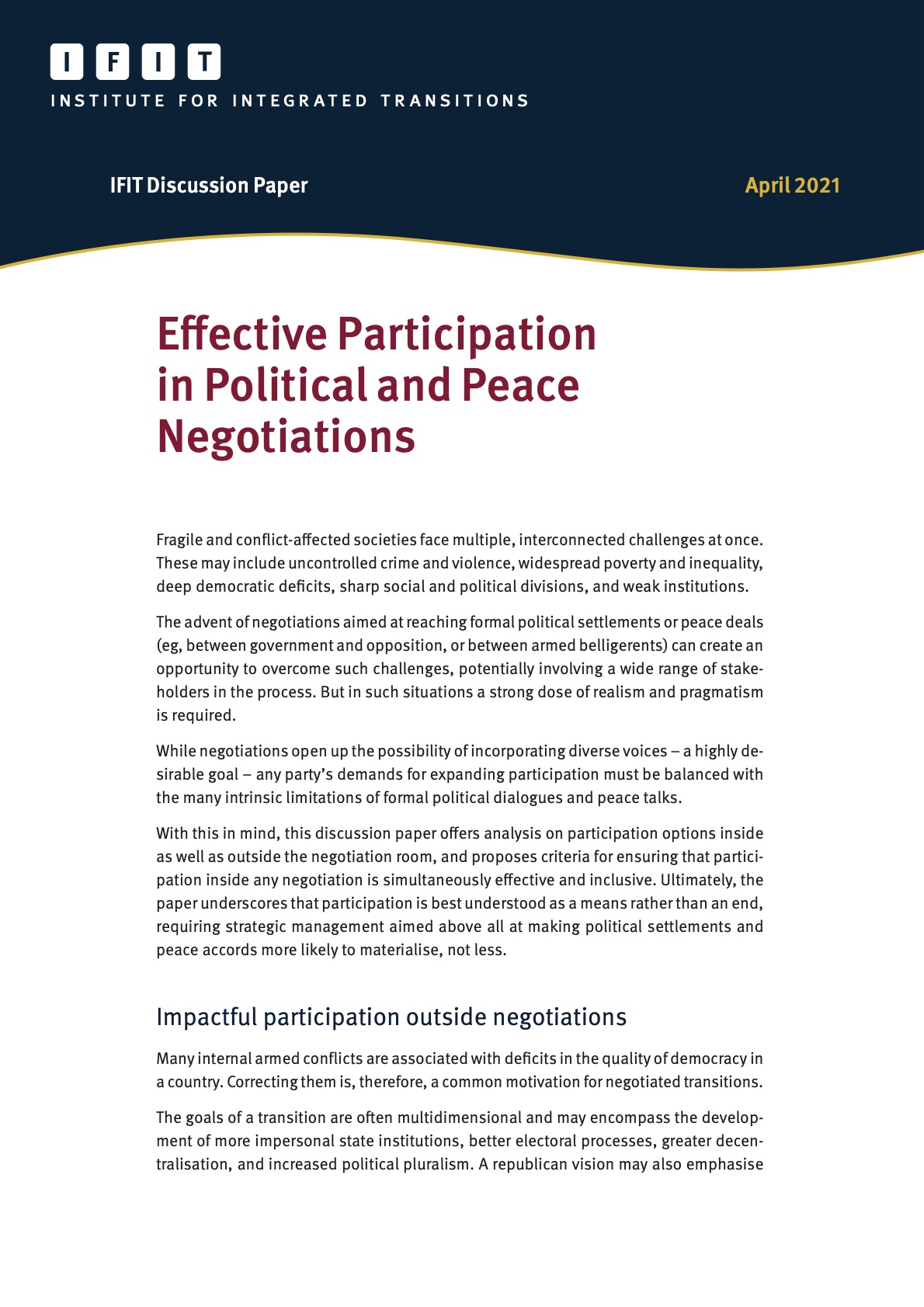Publication
/ Law and Peace
Effective Participation in Political and Peace Negotiations
The advent of any negotiation aimed at reaching formal political settlements or peace deals (eg, between government and opposition, or between armed belligerents) naturally encompasses expectations about who belongs in the negotiating room. But while the possibility of incorporating diverse voices into a negotiation is a highly desirable goal, the nature and number of actors that can do so must be balanced with the many intrinsic limitations of the process itself.
This new IFIT discussion paper offers original analysis on participation options inside as well as outside the negotiation room, and proposes practical criteria for ensuring that participation inside any negotiation is simultaneously effective and inclusive. The paper underscores that participation is best understood as a means rather than an end, requiring a strategy geared above all at making political settlements and peace accords more likely to materialise, not less.
The DOI registration ID for this publication is: https://doi.org/10.5281/zenodo.10473932
You may also be interested in
![]()
publication
/ Law and Peace
Negotiating with Violent Criminal Groups: Lessons and Guidelines from Global Practice
Available in:
-
English
-
Español
![]()
publication
/ Law and Peace
Tax Amnesties as an Aid to Peace Deals and Political Settlements
Available in:
-
English
-
Español
![]()
publication
/ Law and Peace
Transitional Justice and Violent Extremism
Available in:
-
English
![]()
publication
/ Law and Peace
DDR Innovations from the Colombian Peace Process with the FARC-EP
Available in:
-
English
-
Español
-
العربية
![]()
publication /
Law and Peace
Negotiating with Criminal Groups: IFIT Guidance Note for Good-Faith Promoters
![]()
publication /
Law and Peace
Partial Agreements: The Functional Alternative to All-Encompassing Settlements
![]()
publication /
Law and Peace
The Scope for Dialogue with Security Forces in Hybrid Regimes
Available in:
-
Español
![]()
publication /
Law and Peace
Negotiating with Violent Criminal Groups: Lessons and Guidelines from Global Practice
Available in:
-
Español
The advent of any negotiation aimed at reaching formal political settlements or peace deals (eg, between government and opposition, or between armed belligerents) naturally encompasses expectations about who belongs in the negotiating room. But while the possibility of incorporating diverse voices into a negotiation is a highly desirable goal, the nature and number of actors that can do so must be balanced with the many intrinsic limitations of the process itself.
This new IFIT discussion paper offers original analysis on participation options inside as well as outside the negotiation room, and proposes practical criteria for ensuring that participation inside any negotiation is simultaneously effective and inclusive. The paper underscores that participation is best understood as a means rather than an end, requiring a strategy geared above all at making political settlements and peace accords more likely to materialise, not less.
The DOI registration ID for this publication is: https://doi.org/10.5281/zenodo.10473932
You may also be interested in
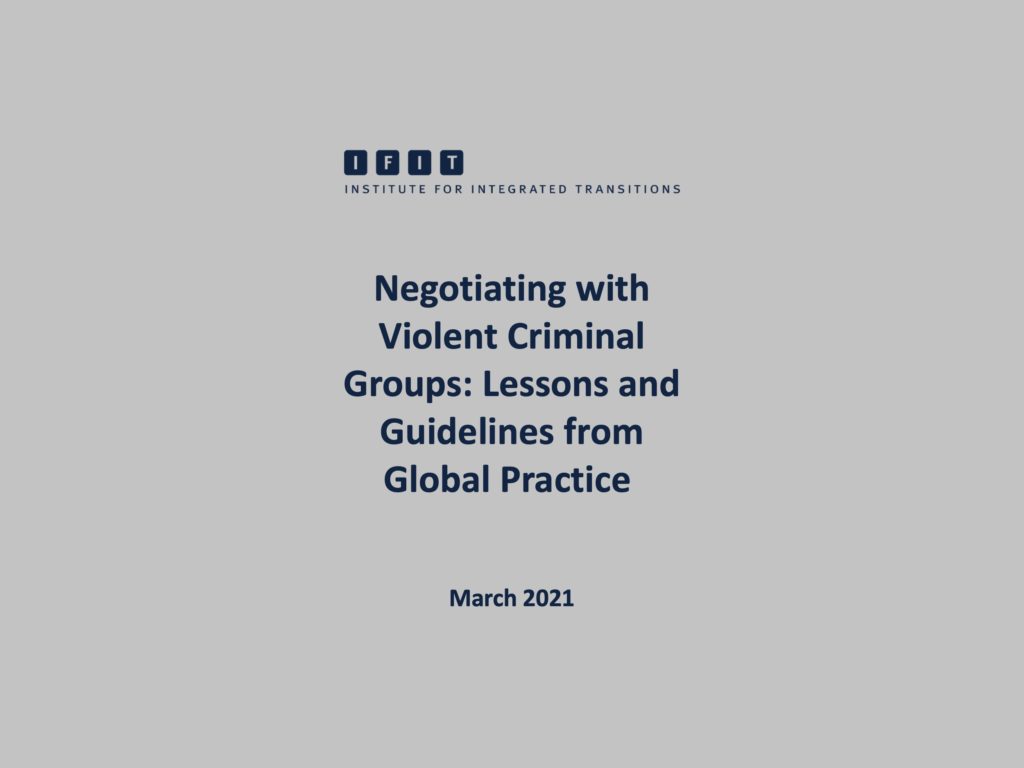
publication / Law and Peace
Negotiating with Violent Criminal Groups: Lessons and Guidelines from Global Practice
- English
- Español
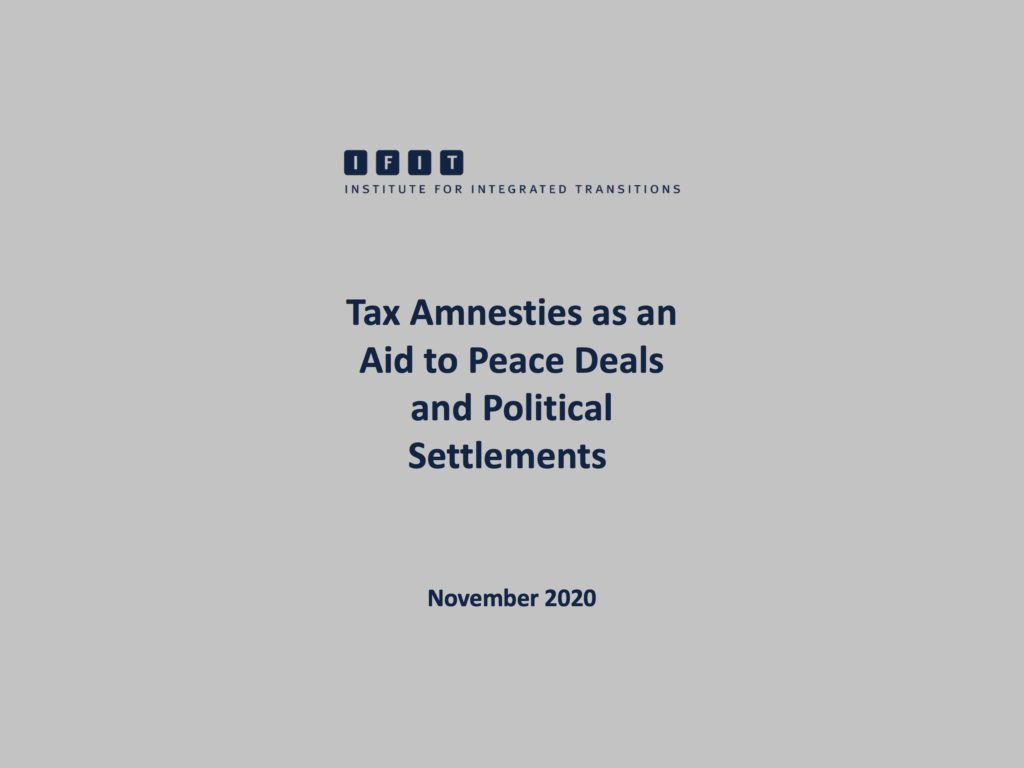
publication / Law and Peace
Tax Amnesties as an Aid to Peace Deals and Political Settlements
- English
- Español
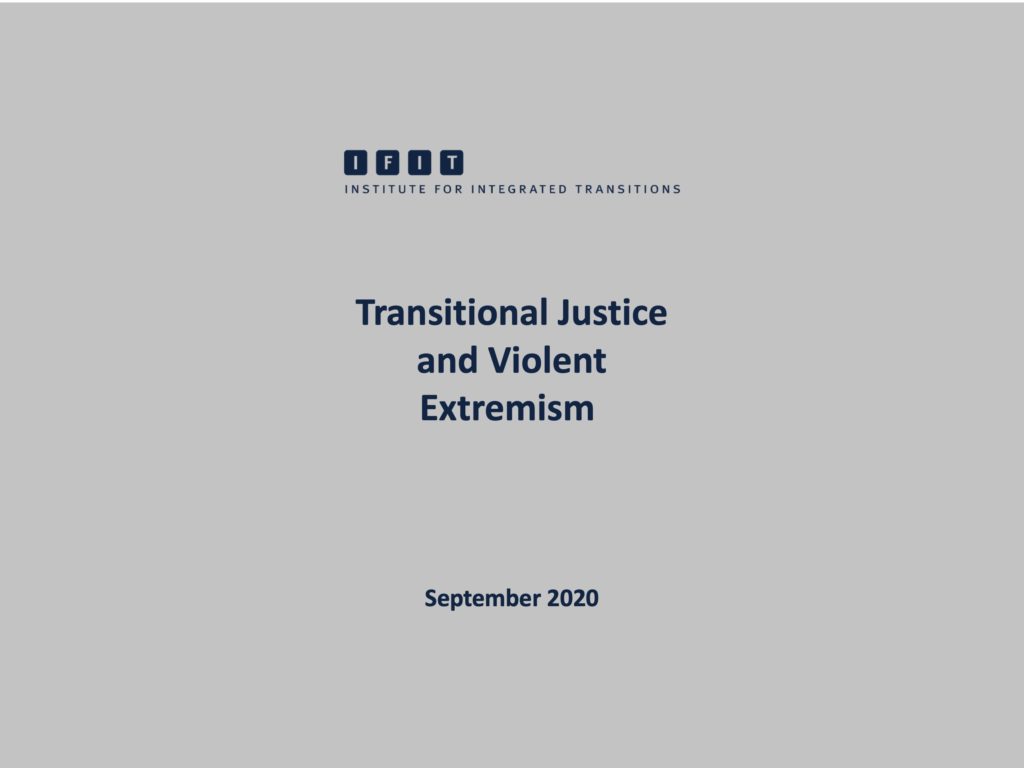
publication / Law and Peace
Transitional Justice and Violent Extremism
- English

publication / Law and Peace
DDR Innovations from the Colombian Peace Process with the FARC-EP
- English
- Español
- العربية

publication / Law and Peace
Negotiating with Criminal Groups: IFIT Guidance Note for Good-Faith Promoters

publication / Law and Peace
Partial Agreements: The Functional Alternative to All-Encompassing Settlements
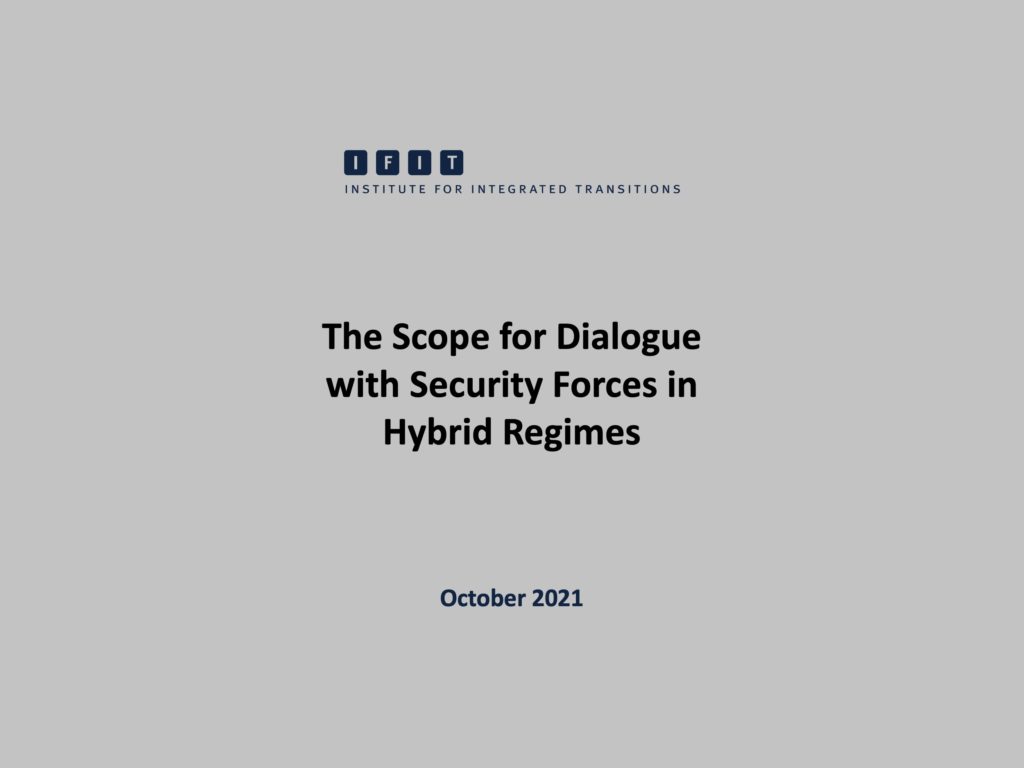
publication / Law and Peace
The Scope for Dialogue with Security Forces in Hybrid Regimes
- Español

publication / Law and Peace
Negotiating with Violent Criminal Groups: Lessons and Guidelines from Global Practice
- Español


